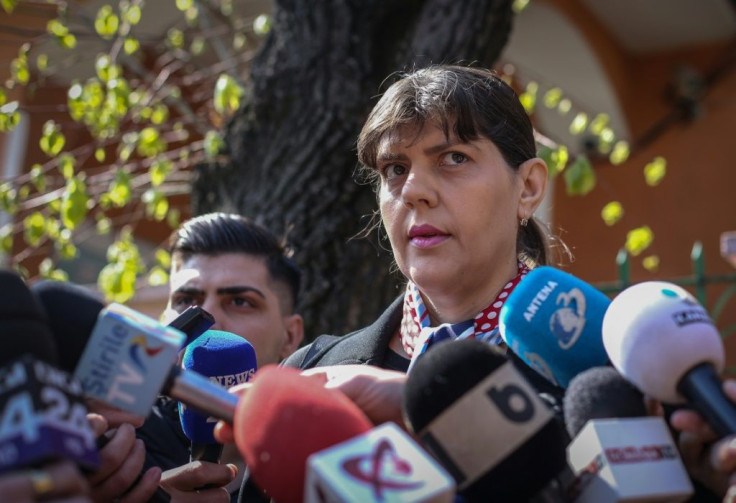Scourge Of Romania's Politicians To Become EU Anti-graft Supremo

A symbol for many of the fight against corruption in one of the EU's most graft-ridden states, Romania's Laura Codruta Kovesi is now all but certain to become Europe's top prosecutor -- in the teeth of opposition from her own government.
As the head of Romania's National Anti-Corruption Directorate (DNA) from 2013 to 2018, Kovesi was the scourge of Romania's political class, before being controversially removed at the left-wing government's behest.
Her appointment comes as that same government, led by the left-wing Social Democrats (PSD), pauses its controversial package of judicial reforms which have been fiercely criticised by the European Commission for allegedly weakening judicial independence.
The self-described "stubborn" Kovesi became a bete noire for the PSD but was popular among the protestors, who have turned out in thousands since early 2017 to "defend the rule of law", often brandishing placards bearing Kovesi's name.
President Klaus Iohannis, who hails from the centre-right and has been at loggerheads with the government, often defended the 46-year-old Kovesi -- although he was eventually forced to approve her dismissal from the DNA.
'Secret pacts'
On Kovesi's watch, the DNA's prosecutors indicted 14 serving or previous ministers, 43 MPs and senators and more than 250 elected local officials.
One of the politicians brought down by the crackdown was Liviu Dragnea, the former head of the PSD who was seen as the country's strongman.
In May, he began a three-and-a-half-year jail sentence for using his influence to procure fake public jobs for PSD party workers.
Some saw this as the reason for the PSD's antipathy towards Kovesi.
In early 2019 the then justice minister Tudorel Toader sent his EU counterparts a letter painting a damning picture of Kovesi's record.
Meanwhile a new panel charged with investigating magistrates indicted Kovesi in March on counts of bribery, abuse of office and false testimony.
Kovesi branded the charges "baseless" and said they were an attempt to prevent her taking up the post in Brussels.
One of the frequent accusations of the PSD government relates to "abuses" by the DNA under Kovesi's leadership.
There's also the allegation that she signed "secret and anti-democratic pacts" with Romania's intelligence agencies to cooperate with them on investigations linked to national security or corruption.
Earlier this year, Toader said the pacts "bring to mind the intermingling of politics, intelligence and law enforcement so notorious in our nation during Communist rule".
Kovesi insists she never broke the law.
One of the more outlandish accusations in the pro-government media is that Kovesi is a "CIA agent" who has received bribes from figures in the underworld -- all of which she denies.
The targeting of Kovesi has had a more sinister side: Two employees of a private intelligence agency called Black Cube have been convicted of "harassment" in an attempt to uncover evidence of possible corruption on her part.
It is still not clear who ordered their actions.
'Covered in scars'
But behind her shy smile and careful tone, Kovesi remains unfazed.
She joked in a previous interview with AFP that she was loath to read newspapers or turn on the television lest she discover "what new crime I'm supposed to have committed".
Columnist Cristian Tudor Popescu said Kovesi was like an "infantryman covered in scars, who has received hundreds of blows" but proved "her capacity to resist pressure".
In her youth, Kovesi was a champion basketball player and her trainers describe her as "persistent" and "ambitious".
Qualities much in evidence in her later career: after nine years as a prosecutor targeting organised crime in the central Sibiu region she was made prosecutor-general in 2006.
When she was forced from her post at the DNA she had these words for her colleagues: "Corruption can be beaten, don't give up!"
© Copyright AFP 2024. All rights reserved.











